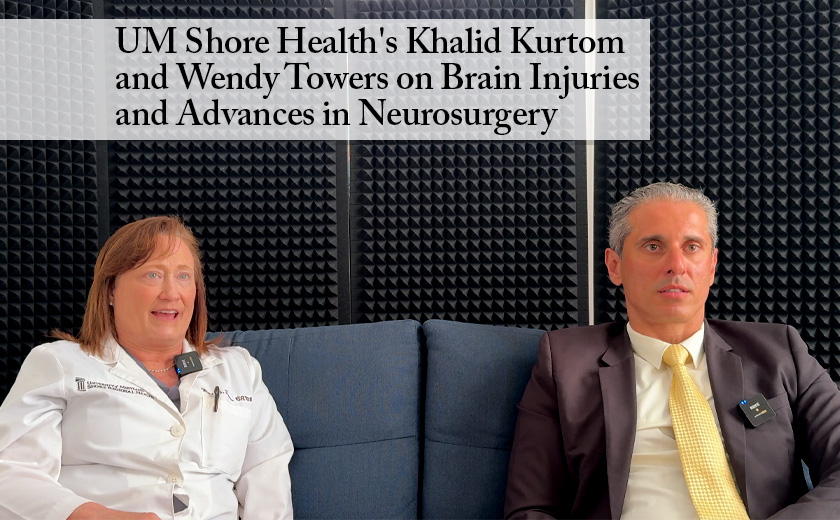Anyone who has ever had a chat with neurosurgeon Khalid Kurtom, MD, at UM Shore Health knows firsthand his extraordinary grasp of knowledge of his chosen field but may not realize his in-depth understanding of both the profound complexity and rapid advances in neuroscience and neurosurgery. And that’s why the Spy always welcomes the opportunity to spend time with him.
This time around, we sat down with him and his longtime colleague, nurse practitioner Wendy Towers, to discuss the differences in brain injuries, detailing how they are classified into mild, moderate, and severe categories based on their severity. Mild injuries, usually from minor incidents like falls, require short-term observation and scanning before patients are released with follow-up instructions. Moderate injuries necessitate overnight hospitalization and possibly interventions if there is bleeding in the brain. Severe injuries involve comatose patients who often need to be flown to specialized centers for extensive neurocritical care.
Symptoms of brain injuries can vary but commonly include headaches, confusion, slurred speech, and often a lack of self-awareness that anything is wrong. These indicators often prompt family members to seek medical attention for the patient. More severe cases can progress to more concerning neurological symptoms such as weakness, numbness, vision troubles, and memory issues, typically leading to hospital admission and repeated scanning.
Both Kurtom and Towers highlight two particularly vulnerable groups: the elderly, who may underestimate minor head traumas, and athletes, who are prone to concussions with lingering effects like trouble sleeping and focusing.
Finally, the two discuss advancements in neurosurgery, emphasizing the shift from traditional methods to cutting-edge techniques like robotic surgery and navigational imaging tools that allow precise interventions, significantly reducing hospital stays and improving recovery outcomes.
This video is approximately ten minutes in length. For more information about Neurosurgery at UM Shore Health please go here.




Dale Jafari says
Very informative! Thank you both for all you both do for our community. We are fortunate to have you.